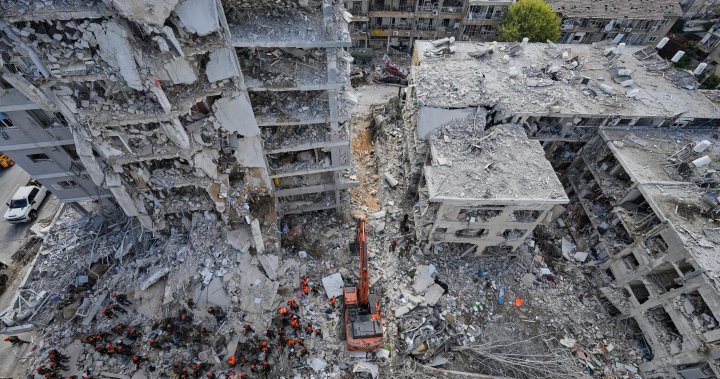The fragile threads of Middle Eastern stability are unraveling at an alarming pace as the Israel-Iran conflict enters its third consecutive day of military exchanges. What began as targeted strikes has evolved into a dangerous cycle of retaliation that threatens to engulf the entire region in a wider conflagration.
Iranian state media reported Saturday that at least five people were killed in Israeli airstrikes overnight, including three members of the Islamic Revolutionary Guard Corps (IRGC). The strikes targeted military installations near Tehran and in western provinces, marking a significant escalation following Iran’s missile barrage against Israel earlier this week.
“This precision operation targeted military facilities directly linked to Iran’s missile production capabilities,” said Israeli Defense Minister Yoav Gallant in a statement released early Saturday. “We have both the right and obligation to defend our citizens against those who seek our destruction.”
The international community has responded with growing alarm. U.S. President Biden called for immediate de-escalation during an emergency National Security Council meeting, while European leaders are planning crisis talks in Brussels on Monday. “We are witnessing a dangerous game of brinkmanship that could spiral beyond anyone’s control,” said EU Foreign Policy Chief Josep Borrell.
Oil markets have reacted predictably, with Brent crude surging 4.8% to $92.40 per barrel on Friday—its highest level since January—as traders price in potential disruptions to regional supply chains. The economic implications extend beyond energy markets, with global equities tumbling and safe-haven assets like gold reaching new highs.
Iran’s Supreme Leader Ayatollah Ali Khamenei delivered a defiant address Friday, declaring that “the Zionist entity will face severe consequences for its aggression.” Meanwhile, in Tehran, thousands participated in government-organized demonstrations, chanting anti-Israel and anti-American slogans following Friday prayers.
The conflict’s humanitarian toll continues to mount. Beyond the immediate casualties, the United Nations Refugee Agency warns that over 200,000 people have been displaced in Lebanon due to cross-border exchanges between Israel and Hezbollah, Iran’s primary regional proxy. Access to medical supplies and essential services has been severely compromised in affected areas.
Regional analysts point to several factors contributing to the current escalation. “This isn’t happening in isolation,” explained Dr. Trita Parsi, Executive Vice President at the Quincy Institute for Responsible Statecraft. “The ongoing Gaza conflict, stalled nuclear negotiations, and domestic political pressures in both countries have created a perfect storm for confrontation.”
Intelligence sources suggest that Israel’s strikes have targeted Iran’s ballistic missile facilities and drone production centers—capabilities that directly threaten Israeli security. Satellite imagery analyzed by independent experts shows significant damage to at least three military sites near Isfahan, a hub of Iran’s defense industry.
As diplomatic efforts struggle to gain traction, the risk of miscalculation grows with each passing hour. With Iranian proxies in Syria, Lebanon, Iraq, and Yemen potentially entering the fray, the question facing world leaders is no longer whether this conflict will expand, but rather how widespread and devastating that expansion might become.
In this perilous moment, one must ask: What will it take for cooler heads to prevail in a region where historical grievances and strategic interests have created such a combustible environment?










